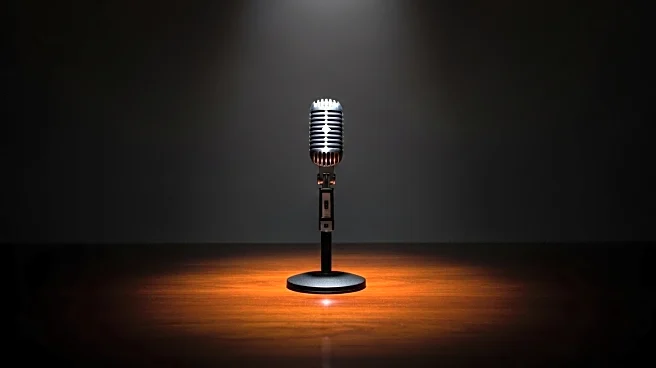What is the story about?
What's Happening?
In 1985, the U.S. Senate held hearings spearheaded by the Parents Music Resource Center (PMRC), co-founded by Tipper Gore and Susan Baker, to address concerns over explicit content in rock music. The PMRC, supported by prominent figures like Mike Love and Joseph Coors, aimed to increase parental controls over music deemed to have objectionable content, such as sex, violence, and drug references. The hearings focused on the 'Filthy Fifteen,' a list of songs by artists like Prince, Madonna, and Judas Priest, which the PMRC found particularly offensive. The hearings sparked significant debate over censorship, with musicians like Frank Zappa and Dee Snider testifying against the PMRC's proposals.
Why It's Important?
The 1985 Senate hearings marked a pivotal moment in the debate over censorship and artistic freedom in the U.S. music industry. The PMRC's campaign led to the introduction of Parental Advisory labels on albums, impacting how music was marketed and sold. This move was seen by many artists as an infringement on creative expression and a form of government overreach. The hearings also highlighted the cultural clash between conservative values and the evolving music scene, setting a precedent for future discussions on media censorship. The controversy underscored the tension between protecting children and preserving freedom of speech, a debate that continues in various forms today.
What's Next?
Following the hearings, the Recording Industry Association of America (RIAA) agreed to label albums with explicit content, a practice that persists. The PMRC's influence waned, but the legacy of the hearings remains in ongoing discussions about media regulation and censorship. Artists continue to navigate the balance between creative expression and societal norms, with the internet age presenting new challenges and opportunities for content distribution. The debate over censorship has expanded beyond music to include other media forms, reflecting broader societal shifts in attitudes towards freedom of expression.
Beyond the Headlines
The PMRC hearings not only affected the music industry but also had broader implications for cultural and political discourse in the U.S. The hearings were a reflection of the era's cultural wars, with music becoming a battleground for debates over morality and family values. The controversy also highlighted the power dynamics between artists and political figures, as well as the role of media in shaping public perception. The legacy of the PMRC's campaign is evident in ongoing discussions about the regulation of content in the digital age, where the lines between censorship and protection are continually being redefined.















